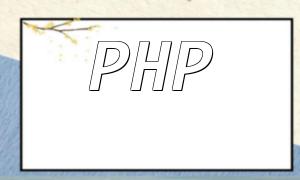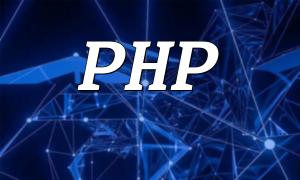With the rapid growth of the internet, website security has become increasingly important. As a widely used language for web development, PHP code security auditing is essential. This article introduces core PHP auditing techniques and recommends several practical tools to help developers enhance code security.
In PHP code auditing, it is crucial to pay attention to the usage of sensitive functions. For example, the eval() function executes dynamically passed code and poses significant security risks. Other functions like system() and exec() have similar concerns. Scanning these functions' usage helps quickly identify potential vulnerabilities.
$code = $_POST['code'];
eval($code);
Input filtering is an effective method to prevent SQL injection, XSS attacks, and other common vulnerabilities. Common approaches include escaping HTML tags and restricting special characters to ensure the security of user inputs.
$name = $_GET['name'];
$name = strip_tags($name); // Filter out HTML tags
A robust error handling mechanism improves system security and stability. It is recommended to suppress error messages to avoid leaking sensitive information, while properly catching and managing exceptions.
error_reporting(0); // Suppress error output
File upload features are common attack targets. Auditing requires attention to upload paths, file types, and size restrictions. Security measures include disabling script execution on uploads and preventing directory traversal.
$allowedTypes = array('jpg', 'png');
$uploadFile = $_FILES['file'];
$extension = strtolower(pathinfo($uploadFile['name'], PATHINFO_EXTENSION));
if (in_array($extension, $allowedTypes)) {
move_uploaded_file($uploadFile['tmp_name'], 'uploads/' . $uploadFile['name']);
}
RIPS is an open-source tool specialized in PHP code security auditing. It performs static analysis to detect security vulnerabilities in code and provides detailed remediation advice to help developers quickly identify security issues.
PHP_CodeSniffer is a tool for code quality checking that also helps enforce coding standards and detect potential security risks. By defining custom rule sets, teams can efficiently maintain code security.
The Open Web Application Security Project (OWASP) offers a wealth of security resources and tools to help developers identify and mitigate common web application security risks. Its Top 10 project is especially valuable for PHP security auditing.
PHP code auditing is a vital process for ensuring website security. By applying techniques such as sensitive function scanning, input filtering, error handling, and secure file uploading, combined with tools like RIPS, PHP_CodeSniffer, and OWASP resources, developers can effectively enhance code security. Continuous learning and adoption of these methods and tools are key to maintaining a secure website environment.









